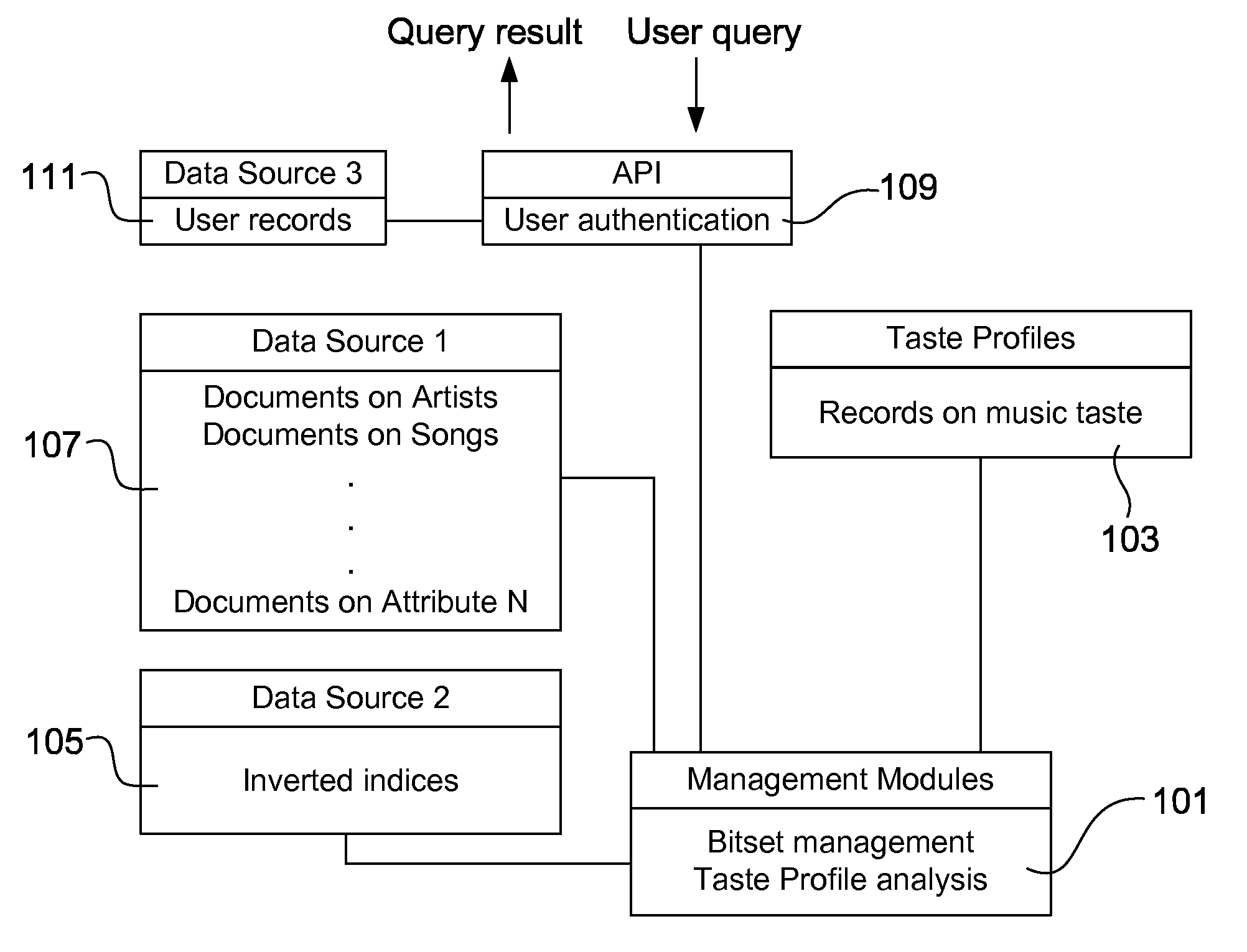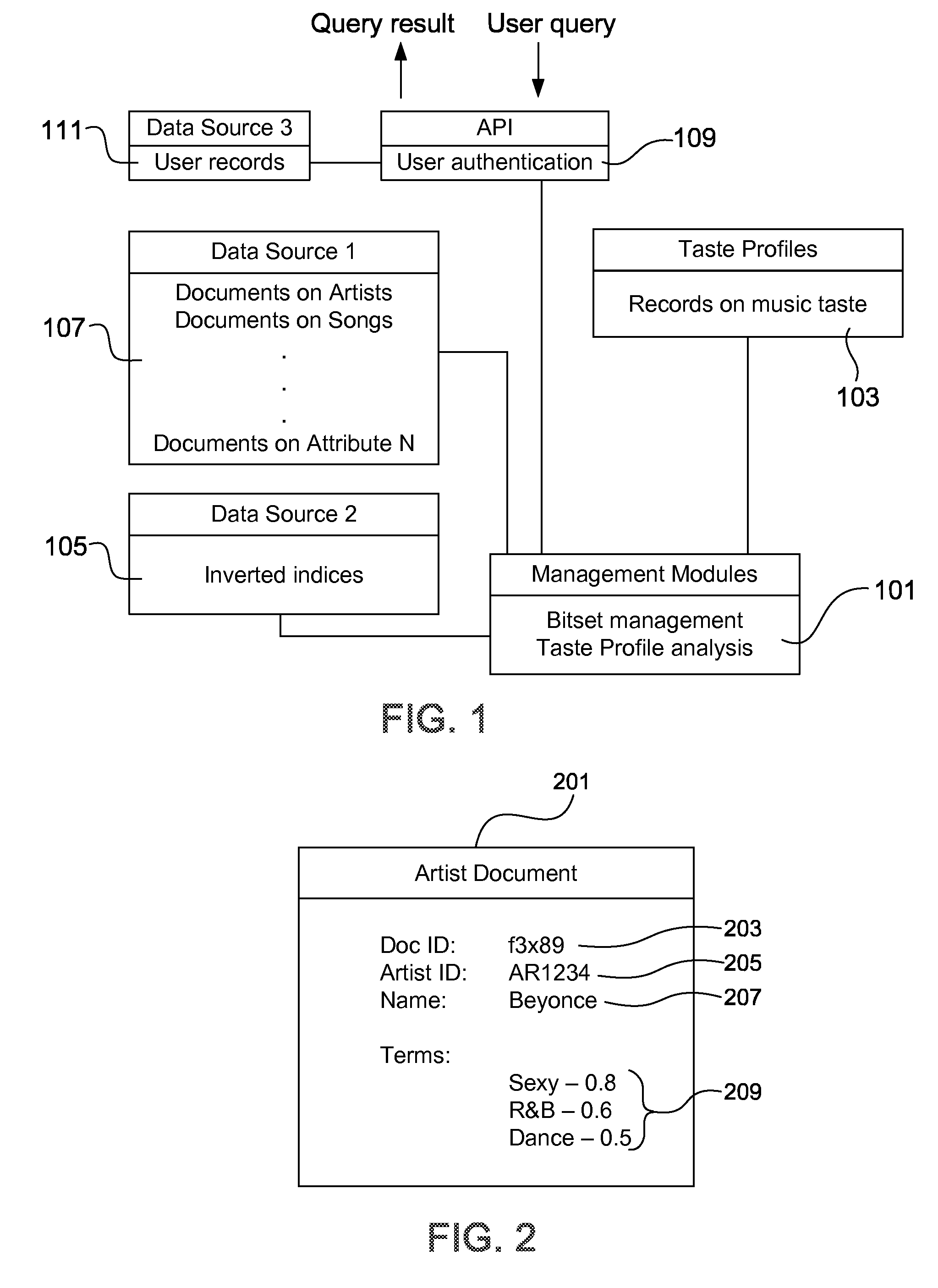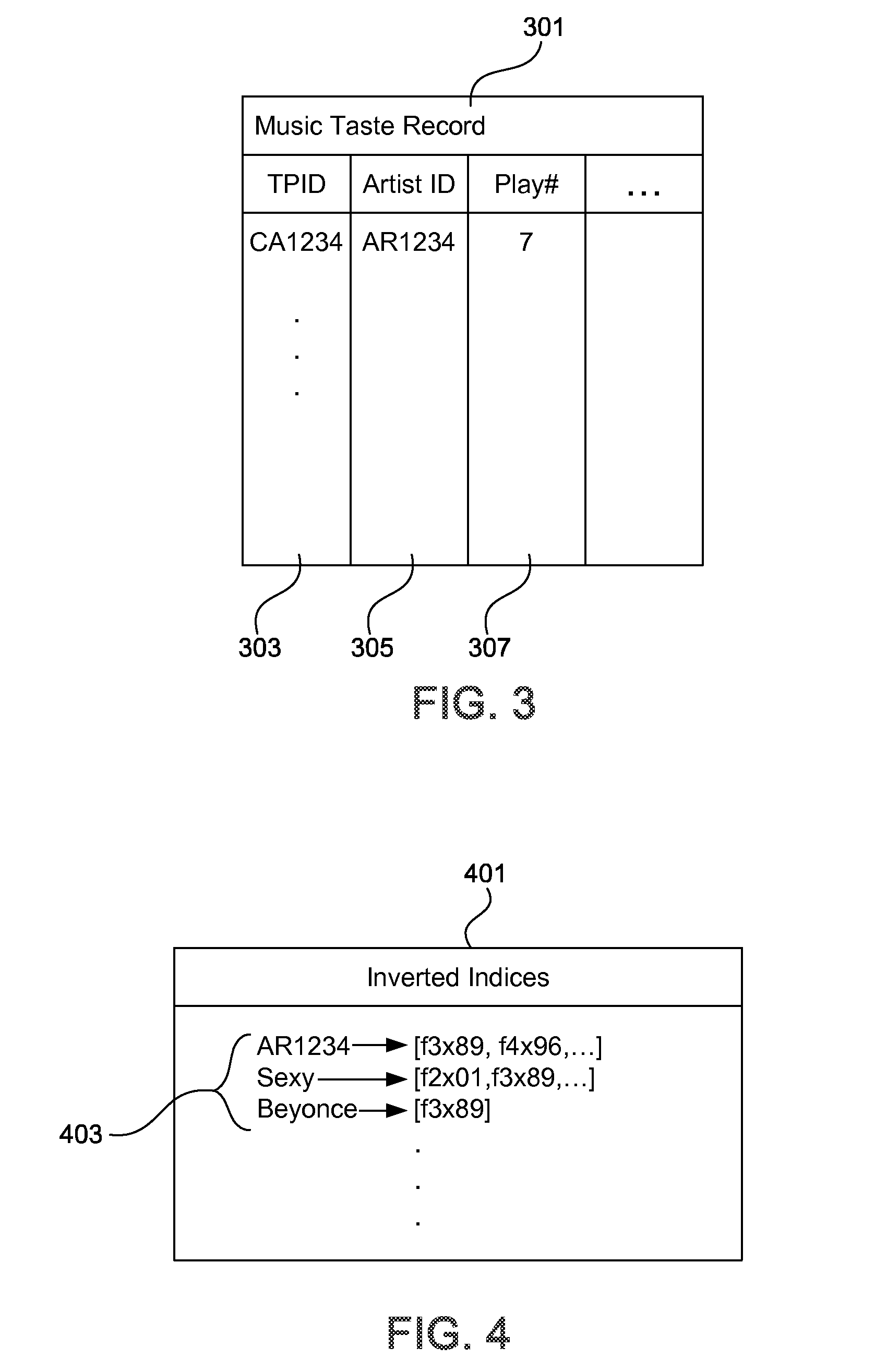Demographic and media preference prediction using media content data analysis
a technology of media content and demographics, applied in the field of demographic and media preference prediction using media content data analysis, can solve the problems of less accuracy of predictions, existing approaches rely on a relatively small set of source data, etc., and achieve the effect of less accuracy
- Summary
- Abstract
- Description
- Claims
- Application Information
AI Technical Summary
Benefits of technology
Problems solved by technology
Method used
Image
Examples
Embodiment Construction
[0016]The example embodiments of the invention presented herein are directed to methods, systems and computer program products for predicting demographic data. This description is not intended to limit the application of the example embodiments presented herein. In fact, after reading the following description, it will be apparent to one skilled in the relevant art(s) how to implement the following example embodiments in alternative embodiments, such as such as a services-based environment, a web media-based environment, etc.
[0017]FIG. 1 illustrates a representative view of a system in which some embodiments of the invention may be implemented. The environment comprises several modules, which may be embodied as, for example, computer hardware elements executing software, as described below with respect to FIG. 7.
[0018]As shown in FIG. 1, the system includes management modules 101, which control processing including taste profile analysis. In response to a query, management modules 1...
PUM
 Login to View More
Login to View More Abstract
Description
Claims
Application Information
 Login to View More
Login to View More - R&D
- Intellectual Property
- Life Sciences
- Materials
- Tech Scout
- Unparalleled Data Quality
- Higher Quality Content
- 60% Fewer Hallucinations
Browse by: Latest US Patents, China's latest patents, Technical Efficacy Thesaurus, Application Domain, Technology Topic, Popular Technical Reports.
© 2025 PatSnap. All rights reserved.Legal|Privacy policy|Modern Slavery Act Transparency Statement|Sitemap|About US| Contact US: help@patsnap.com



